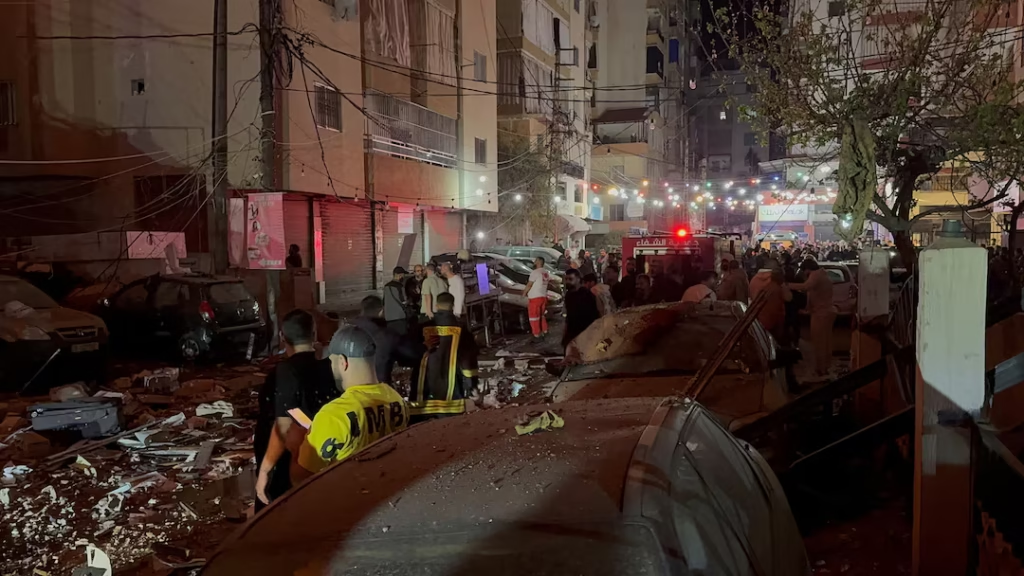In a move that could escalate regional tensions, Israel conducted an airstrike in southern Lebanon on Friday, killing senior Hamas commander Hassan Farhat. The strike marks a significant challenge to the fragile ceasefire brokered in late 2023 between Israel and Hezbollah, Lebanon’s Iran-backed militant group.

According to the Israeli military, Farhat was responsible for a rocket attack last year on the city of Safed that resulted in Israeli casualties. Labeling Farhat a key militant operative, the military stated it would continue to target Hamas operatives “wherever they operate.”
A Lebanese security source confirmed that Farhat was killed alongside his son and daughter in their apartment in Sidon, a southern Lebanese city. Hamas’ armed wing, the al-Qassam Brigades, confirmed his death and hailed his “blessed contributions” to the group’s operations against Israel.
In a swift reaction, Hezbollah issued a strongly worded condemnation, warning that the strike on Sidon indicated Israel’s intent to expand its aggression across Lebanon. “This attack is evidence of the enemy’s plan to widen the scope of its operations and target all of Lebanon,” Hezbollah said in a statement.
Hamas and Hezbollah have long-standing ties, and Hezbollah launched numerous cross-border attacks in 2023 in solidarity with Hamas during the war in Gaza. Israel responded with a wide-ranging campaign across Lebanon, significantly weakening Hezbollah’s leadership structure.
Lebanese Prime Minister Nawaf Salam’s office denounced Friday’s airstrike as a clear violation of the U.S.-mediated ceasefire agreement, which has increasingly shown signs of strain. Since November, both sides have exchanged fire: Israel has launched airstrikes on Hezbollah-held areas in Beirut’s southern suburbs, and rockets have been launched from Lebanon toward Israeli territory on at least two occasions.
Hezbollah, while denying involvement in recent rocket attacks, criticized the ceasefire’s sponsors, particularly the United States, for allegedly ignoring repeated Israeli violations. The U.S. has backed Israel’s stance, defending its right to self-defense and blaming “terrorist elements” for renewed hostilities.
With the ceasefire now appearing increasingly fragile and both sides ramping up rhetoric and retaliatory measures, the region faces the growing threat of renewed large-scale conflict.



